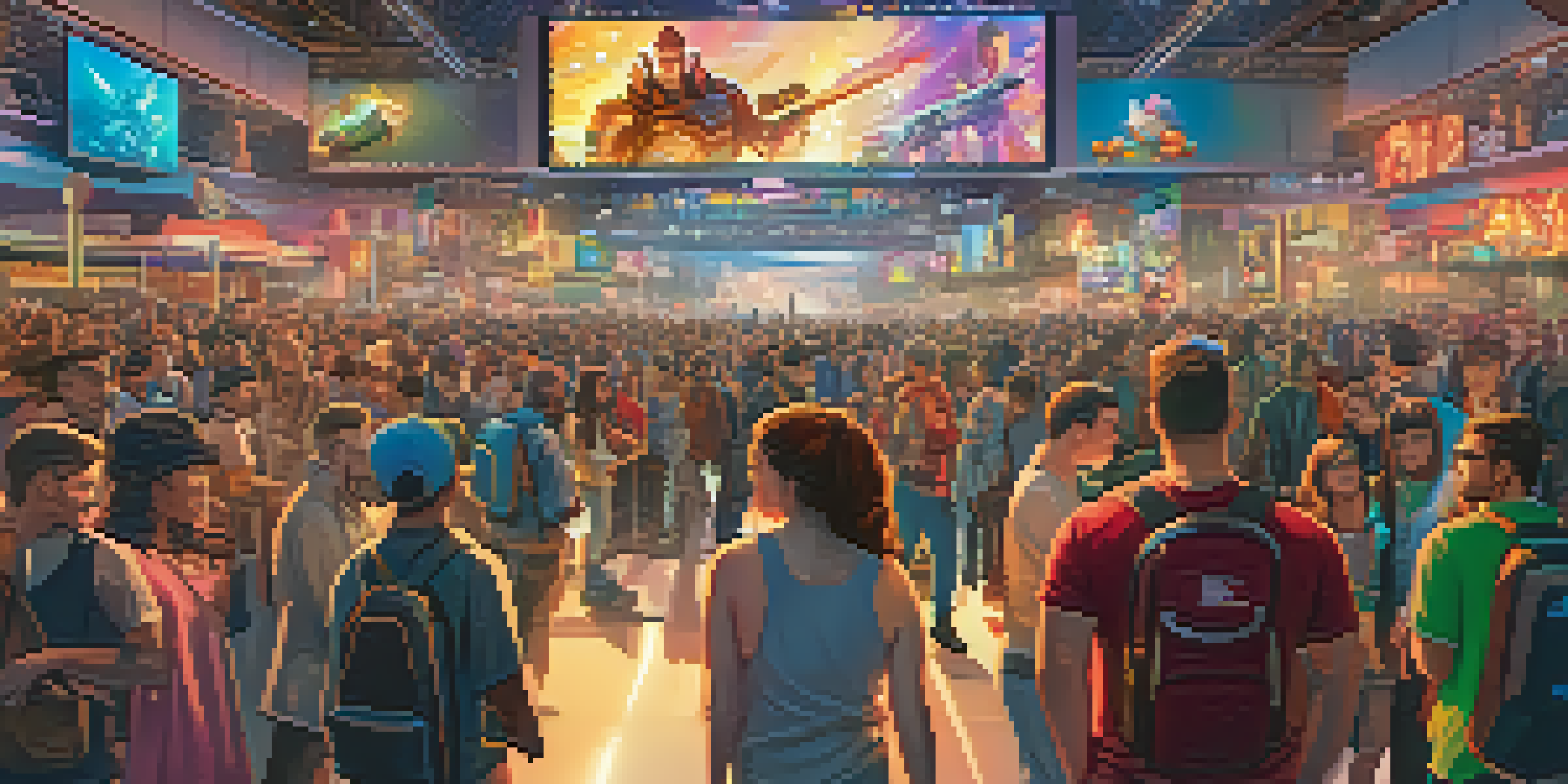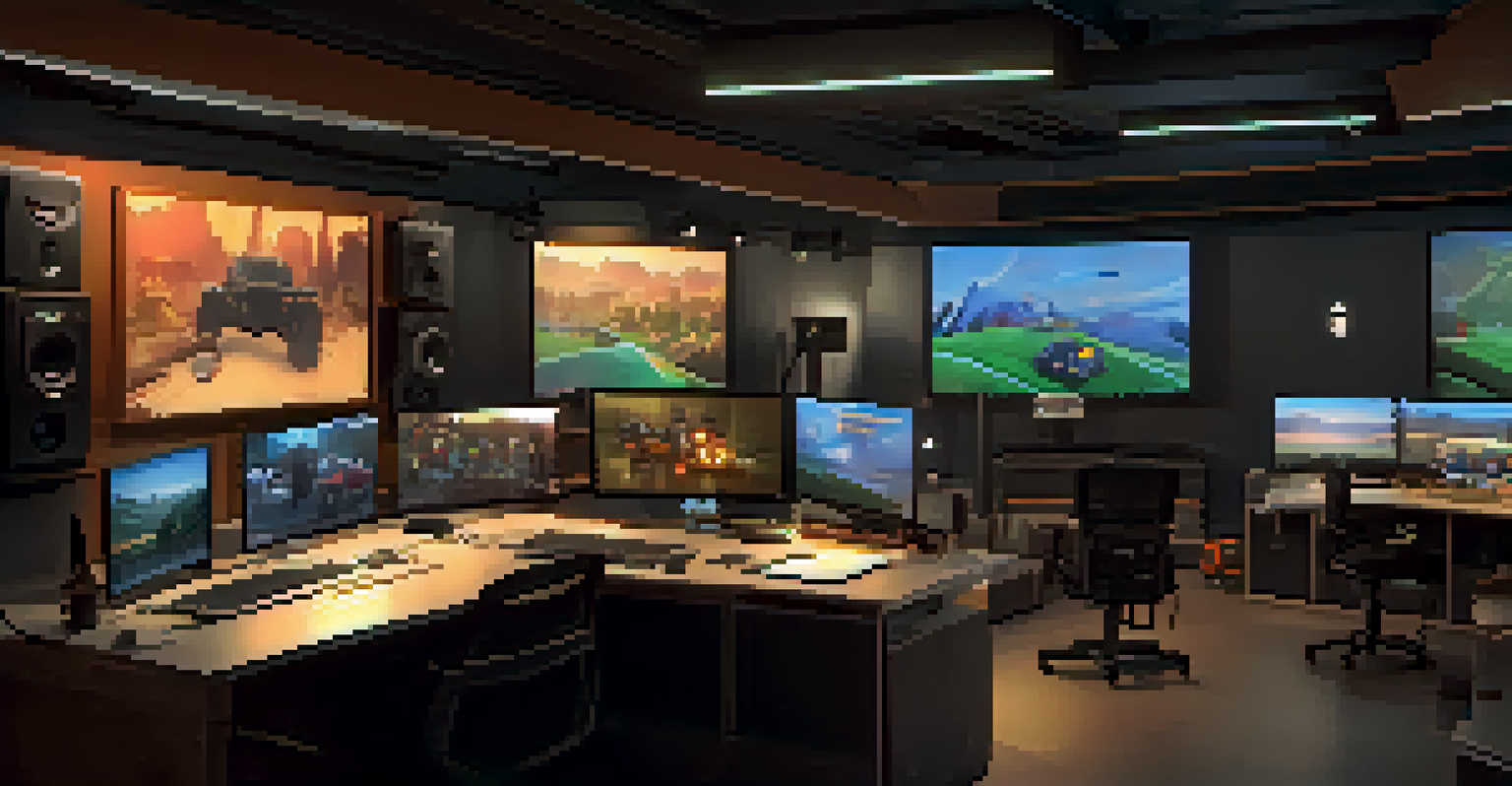Hollywood's Marketing Prowess in Video Game Launches

The Intersection of Film and Gaming: A New Era
In recent years, the worlds of film and video games have collided in fascinating ways. Hollywood's influence on video game marketing has become increasingly evident, with blockbuster titles often leveraging cinematic techniques to engage audiences. This convergence allows game developers to craft narratives and experiences that resonate on a deeper level, enhancing emotional investment from players.
Games are the most immersive form of entertainment we have today, and the storytelling can rival film and television.
For example, consider the launch of 'The Last of Us Part II,' which utilized cinematic trailers and storytelling elements that echo popular films. These strategies helped create buzz before the game even hit the shelves, demonstrating that the right marketing can evoke excitement akin to that of a movie premiere. As a result, players feel a connection to the characters and story, driving pre-orders and sales.
This trend not only boosts initial sales but also establishes a franchise identity, paving the way for sequels and spin-offs. The collaboration between Hollywood and gaming is reshaping how stories are told across media, creating a rich tapestry of experiences that captivate audiences.
Star Power: Celebrity Involvement in Game Promotions
One of the most effective tactics Hollywood employs in video game marketing is leveraging celebrity endorsements. When a well-known actor or musician is involved in a game, it instantly garners attention and credibility. Think about how the announcement of Keanu Reeves in 'Cyberpunk 2077' sent waves of excitement through both gaming and film communities.

These celebrities often bring their fanbases along, expanding the reach of a game's marketing efforts. Not only do their names attract interest, but their performances can also enhance the game's narrative depth, making it feel more like an interactive film. This blending of star power with gaming creates buzz that traditional marketing alone might struggle to achieve.
Film Techniques Enhance Game Marketing
The integration of cinematic storytelling in video game marketing captivates players and boosts emotional investment.
Furthermore, social media has amplified this effect, allowing celebrities to share their experiences with games directly with their followers. This personal touch creates an authentic connection, making the promotional efforts feel less like advertising and more like a shared experience.
Cinematic Trailers: Crafting Intriguing Narratives
Cinematic trailers have become a staple in video game marketing, often resembling short films more than traditional game previews. These trailers serve as a powerful tool to establish mood, tone, and character, drawing players into the game's universe. A well-crafted trailer can evoke emotions and provoke curiosity, making viewers eager to dive into the game itself.
The best stories are the ones that can be experienced from multiple angles, and games allow for that in a way that film simply cannot.
For instance, the 'God of War' series has consistently released trailers that not only showcase gameplay but also tell a compelling story. This approach captivates potential players by inviting them to experience the journey alongside the characters. By blending storytelling with visuals, these trailers create an immersive experience that sets the stage for the game's launch.
Additionally, these promotional videos often generate discussions and theories within the gaming community, further amplifying their reach. The anticipation builds as fans dissect every frame, eagerly awaiting the game’s release, which in turn drives pre-sales.
Cross-Promotion: Merging Brands for Maximum Impact
Cross-promotion between video games and popular films or TV shows has become a savvy marketing strategy. By aligning a game launch with a major film release, companies can tap into each other's audiences, maximizing visibility. For example, the 'Fortnite' crossover events with Marvel and Star Wars have attracted millions of players while promoting the respective film franchises.
These collaborations often result in exclusive in-game content related to the film, creating a buzz and excitement that encourages players to engage. This strategy not only drives game downloads but also enhances the overall brand experience for both parties involved. Players feel like they are part of something bigger, adding to their enjoyment of the game.
Celebrities Drive Game Engagement
Celebrity endorsements in video games attract wider audiences and enhance narratives, making promotions feel more authentic.
Moreover, these partnerships can lead to unique merchandising opportunities, further solidifying the connection between the two mediums. As brands continue to explore these collaborations, we can expect even more innovative marketing strategies that captivate audiences in fresh ways.
Event Marketing: Engaging Fans in Real-Time
Live events, such as gaming conventions and film festivals, offer a unique platform for immersive marketing experiences. These gatherings allow developers to engage directly with fans, showcasing their titles through hands-on demos, exclusive trailers, and Q&A sessions. The excitement of being part of a live audience can create lasting memories and deepen fans' connections to a game.
Take the annual E3 convention, for example, where major studios unveil their upcoming titles with grand presentations. These events often include celebrity appearances and live gameplay demonstrations, generating significant media coverage and social media buzz. Fans can feel the energy and enthusiasm, which translates into heightened anticipation for the game’s release.
Furthermore, live events provide an opportunity for instant feedback from the audience, allowing developers to gauge interest and make adjustments if necessary. This interactive approach can lead to a more tailored gaming experience, ensuring that the final product resonates with its audience.
The Role of Social Media in Game Marketing
Social media has transformed the landscape of video game marketing, allowing developers to reach audiences in real-time. Platforms like Twitter, Instagram, and TikTok enable studios to share updates, teasers, and promotional content directly with fans. This immediate interaction creates a sense of community, where players feel involved in the game's journey from development to launch.
For instance, the use of hashtags and challenges on platforms like TikTok can generate viral trends that boost a game's visibility. When players share their experiences or reactions, it fosters organic marketing that feels authentic and relatable. This grassroots approach can significantly impact a game’s success, as potential players are more likely to trust recommendations from their peers.
Social Media Transforms Marketing
Real-time engagement on social media platforms fosters community and organic marketing, significantly impacting a game's visibility.
Additionally, social media allows for targeted advertising, ensuring that marketing efforts reach the right audiences. By analyzing user data, developers can create personalized campaigns that resonate with specific demographics, enhancing the likelihood of engagement and conversions.
Looking Ahead: The Future of Game Marketing
As the lines between Hollywood and video games continue to blur, the future of game marketing looks promising and dynamic. With advancements in technology and storytelling, we can expect even more innovative strategies that engage audiences in unique ways. For instance, virtual reality experiences or interactive trailers could redefine how games are marketed.
Moreover, as gaming becomes more mainstream, the integration of social issues and diverse narratives could play a significant role in marketing efforts. Games that reflect real-world challenges and promote inclusivity can resonate deeply with players, creating a more authentic connection. This shift could encourage more studios to tell varied stories that appeal to a broader audience.

Ultimately, the collaboration between Hollywood and gaming is likely to continue evolving, bringing fresh ideas and approaches to the marketing table. As fans, we can look forward to the exciting ways these two industries will intertwine, making the gaming landscape richer and more engaging.